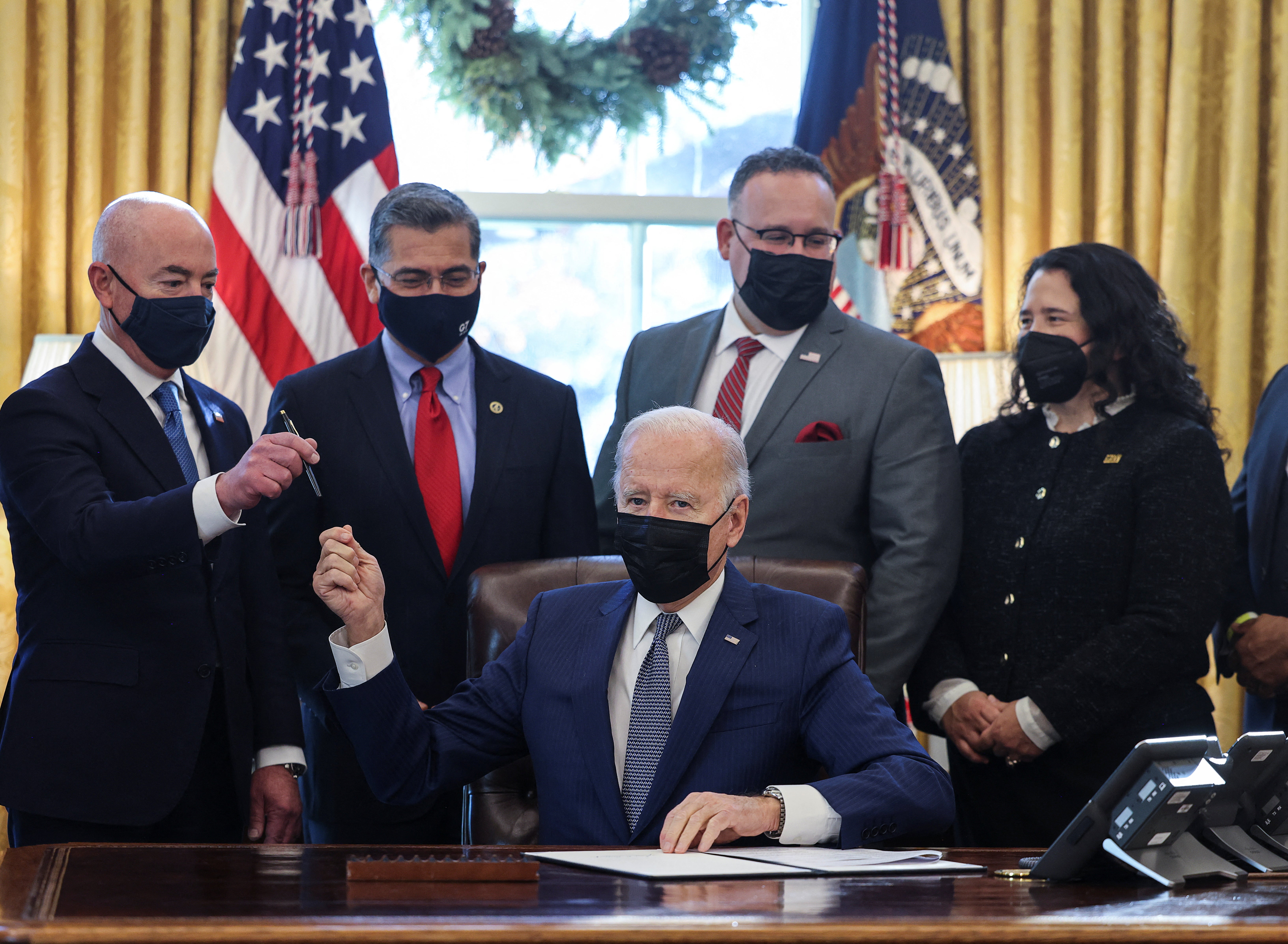Everything you need to know about Biden’s new executive order on cryptocurrency
The text of the order has reportedly been in the works for months
President Joe Biden signed an executive order on Wednesday that could begin an era of much broader oversight over cryptocurrency in the US in the coming days, which could end up spelling significant changes for the dollar as well.
The order was unveiled Wednesday morning by Mr Biden and published on the White House website after being reported by Bloomberg News earlier in the week.
"The [executive order] will help position the U.S. to keep playing a leading role in the innovation and governance of the digital assets ecosystem at home and abroad, in a way that protects consumers, is consistent with our democratic values and advances U.S. global competitiveness," National Security Adviser Jake Sullivan and economic council chair Brian Deese said in a joint statement.
Let’s take a look at what Mr Biden’s executive order will do:
A government-wide effort to study cryptocurrency and its effects
The main thrust of the order appears to be the direction of a number of federal agencies to develop responses to the cryptocurrency phenomenon. That simply means providing a report to the White House regarding everything they are doing to manage the use of cryptocurrency and non-fungible tokens (NFTs).
For each agency, that means something slightly different. At the State Department, it will mean developing a policy for how the US government works with foreign powers to regulate cryptocurrency and its trade across international borders, including working to ensure that US policy remains in line with those of its allies. Other agencies including the Treasury Department will analyse cryptocurrency’s usage in financial crimes and its effect on the environment. And there are further roles for the Justice Department, the Securities and Exchange Commission, and other federal bodies.

A digital dollar?
One of the most significant parts of the order is the direction of agencies to build on efforts by the Federal Reserve to study the possibility of launching a virtual currency, a sort of “digital dollar” that is being explored by other nations as well.
The Federal Reserve released a report in January that discussed advantages and disadvantages of what it described as “a potential US central bank digital currency” that “could provide a safe, digital payment option for households and businesses as the payments system continues to evolve”.
At the time, it warned that the adoption of such a digital currency by the Federal Reserve could potentially “fundamentally change the structure of the U.S. financial system, altering the roles and responsibilities of the private sector and the central bank”.
What it doesn’t mean
The order is seen as neutral on the issue of cryptocurrency as a whole, and signals that the US will not go in the direction of banning the technology’s usage altogether, as have a handful of countries including China.
It also doesn’t mean any specific new regulations yet on the usage of cryptocurrency in the US, but could signal that such regulations are coming down the road.
All in all, it means big changes are on the way for the US government’s handling of a technology that has until now seen its development almost entirely driven by private entrepreneurs.
Join our commenting forum
Join thought-provoking conversations, follow other Independent readers and see their replies
Comments


Bookmark popover
Removed from bookmarks